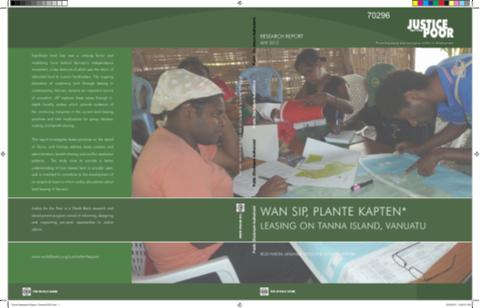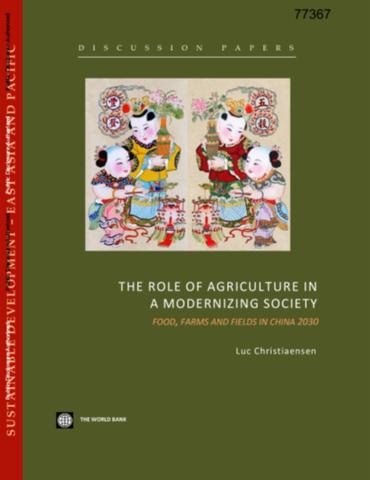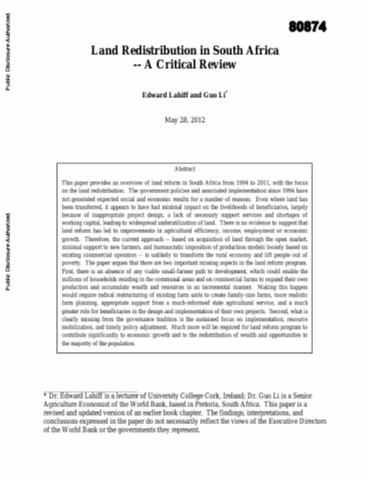Wan Sip, Plante Kapten
The body of this report consists of five sections. Section one is an introduction to the JBE program and the context for the lease research on Tanna. Section two provides a profile of some of the relevant historical and economic features of the island and aspects related to the structure of governance and civil society organization. This is followed in section three by a summary of key findings regarding the 64 leases studied on Tanna.




